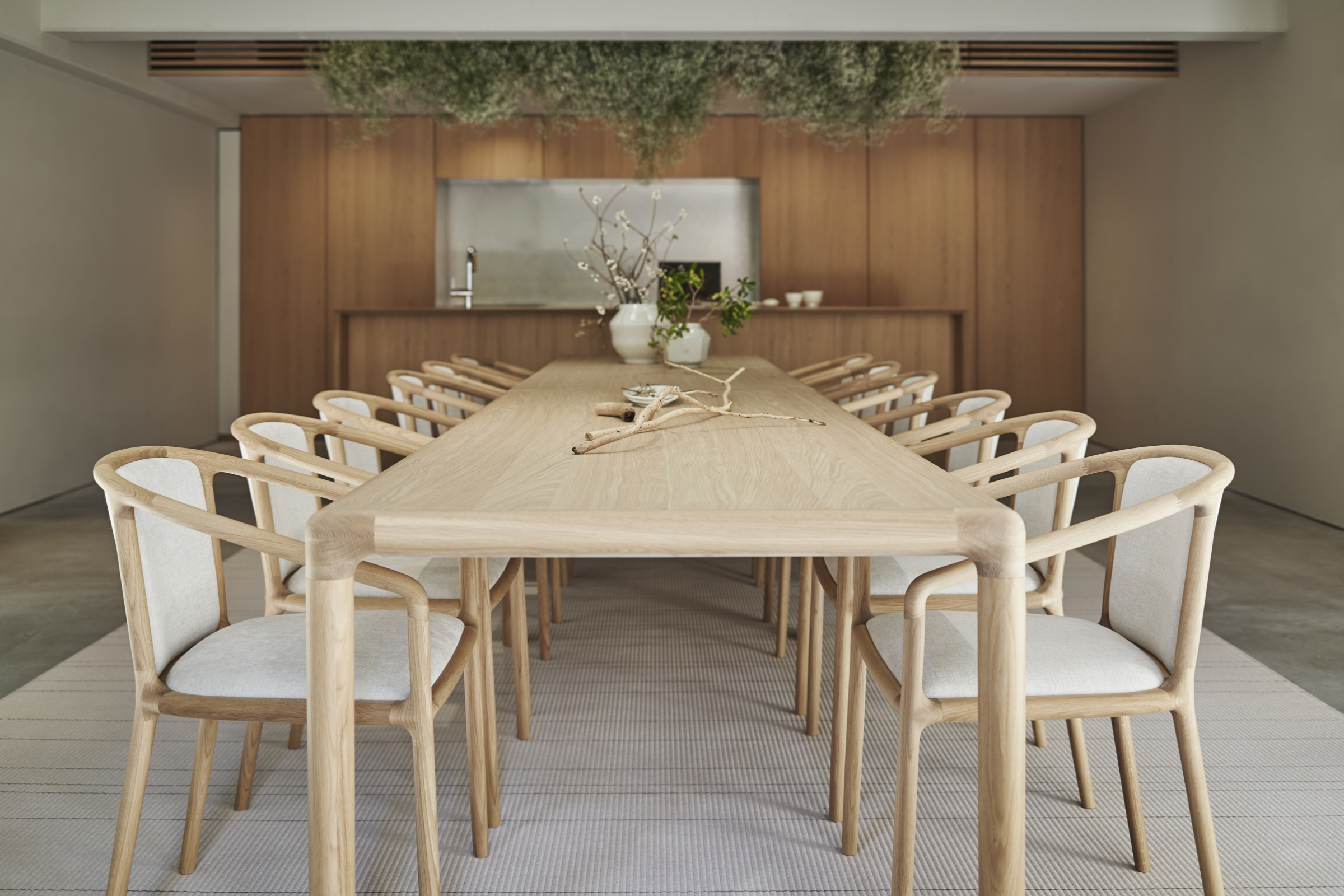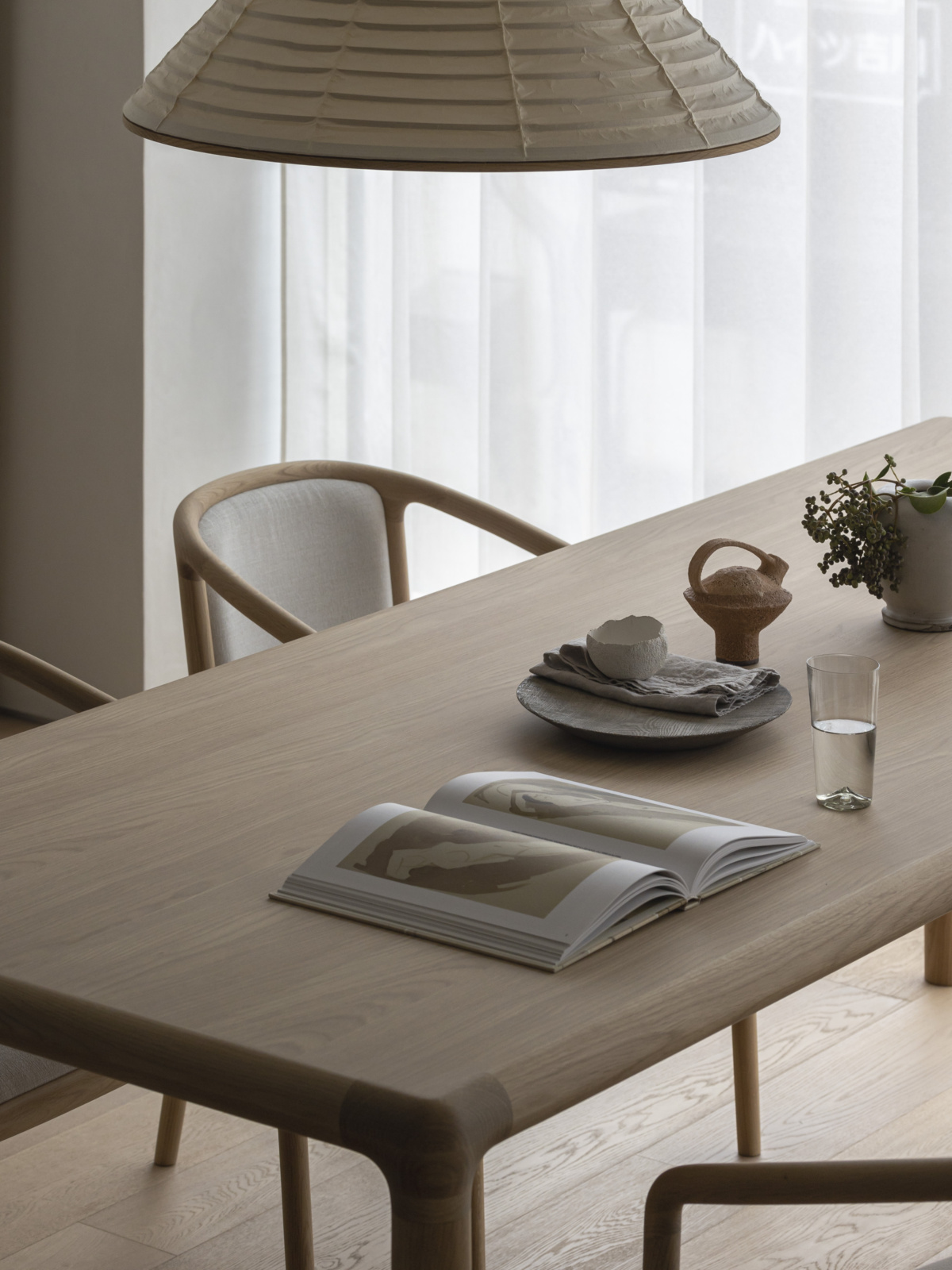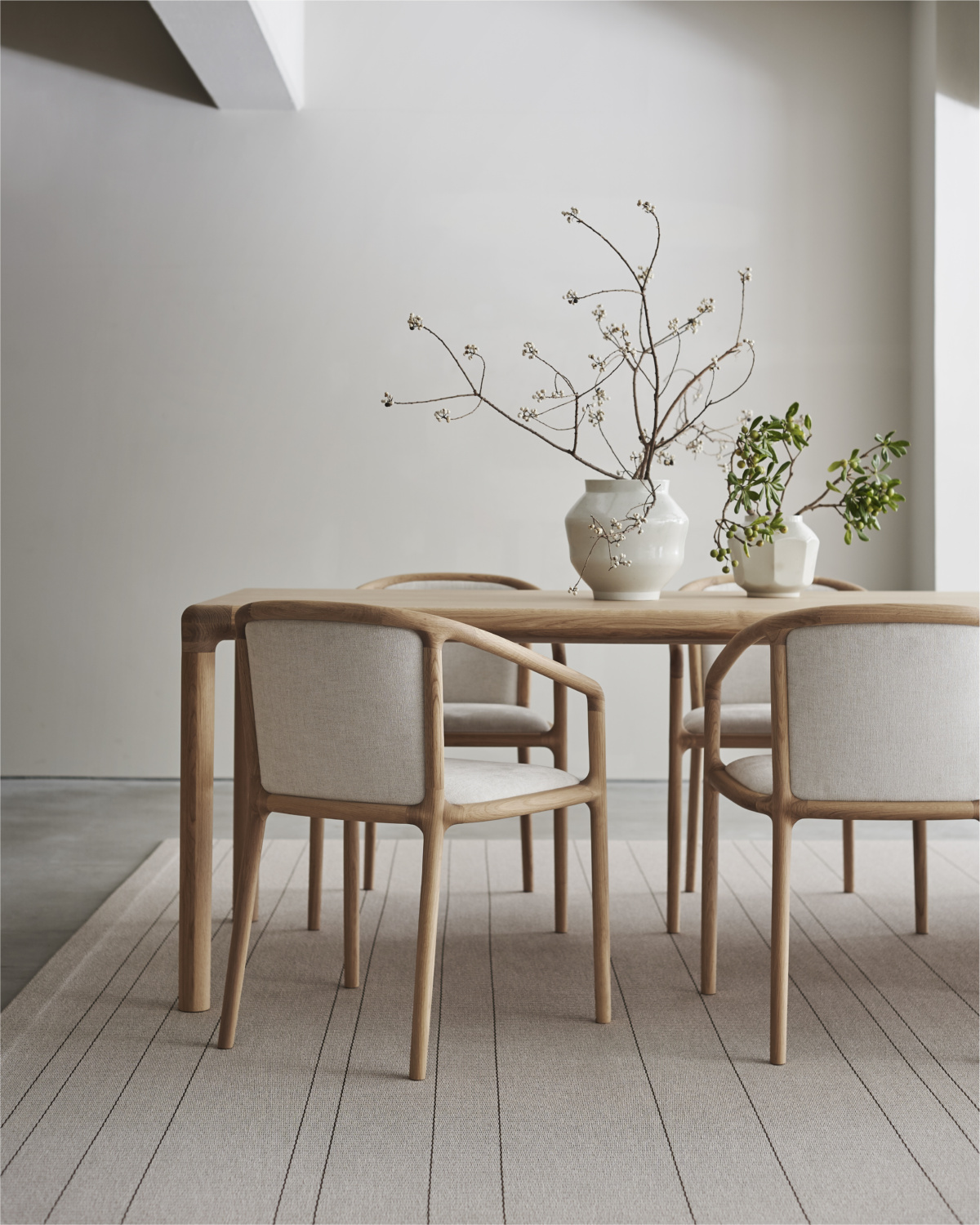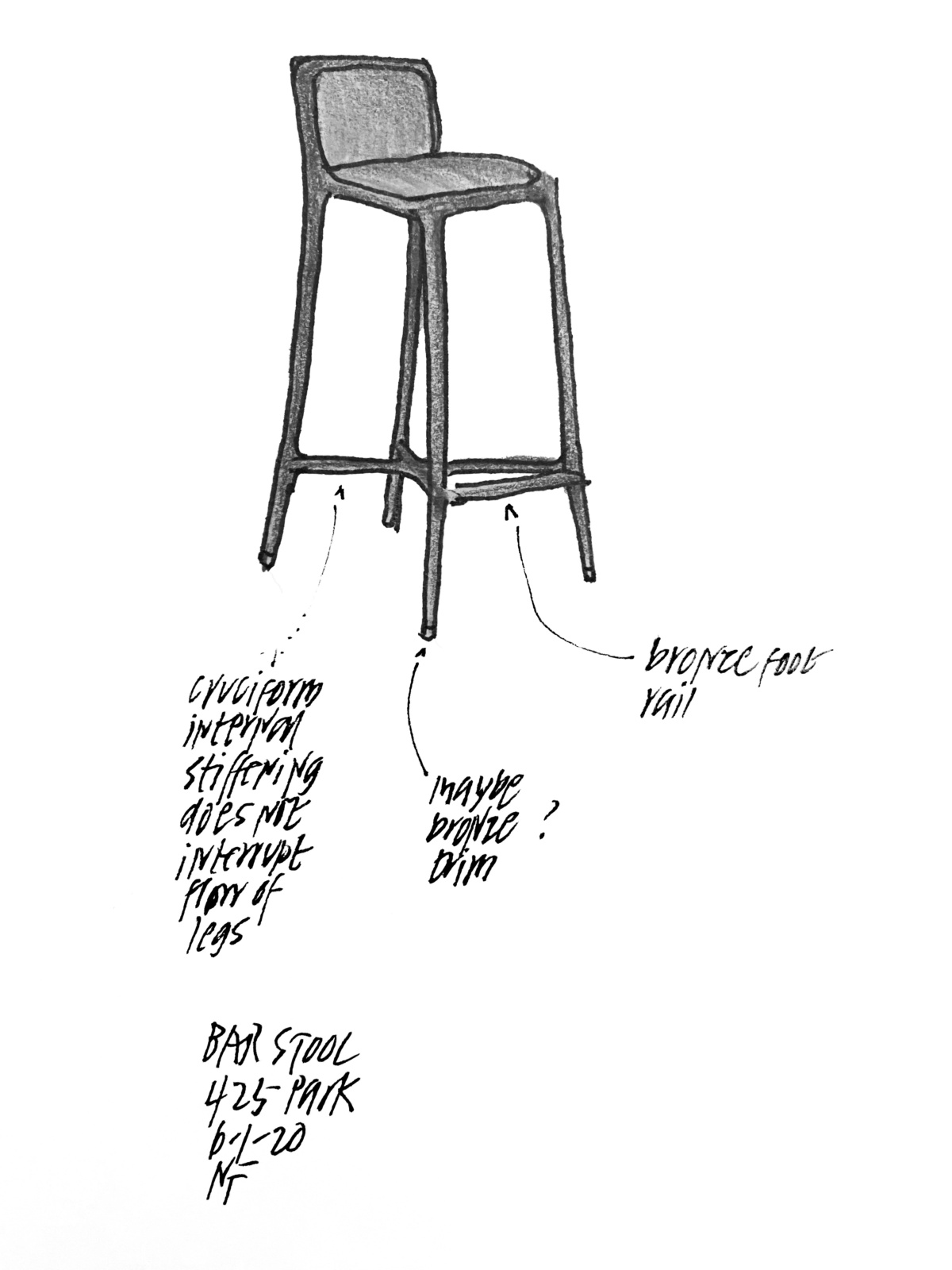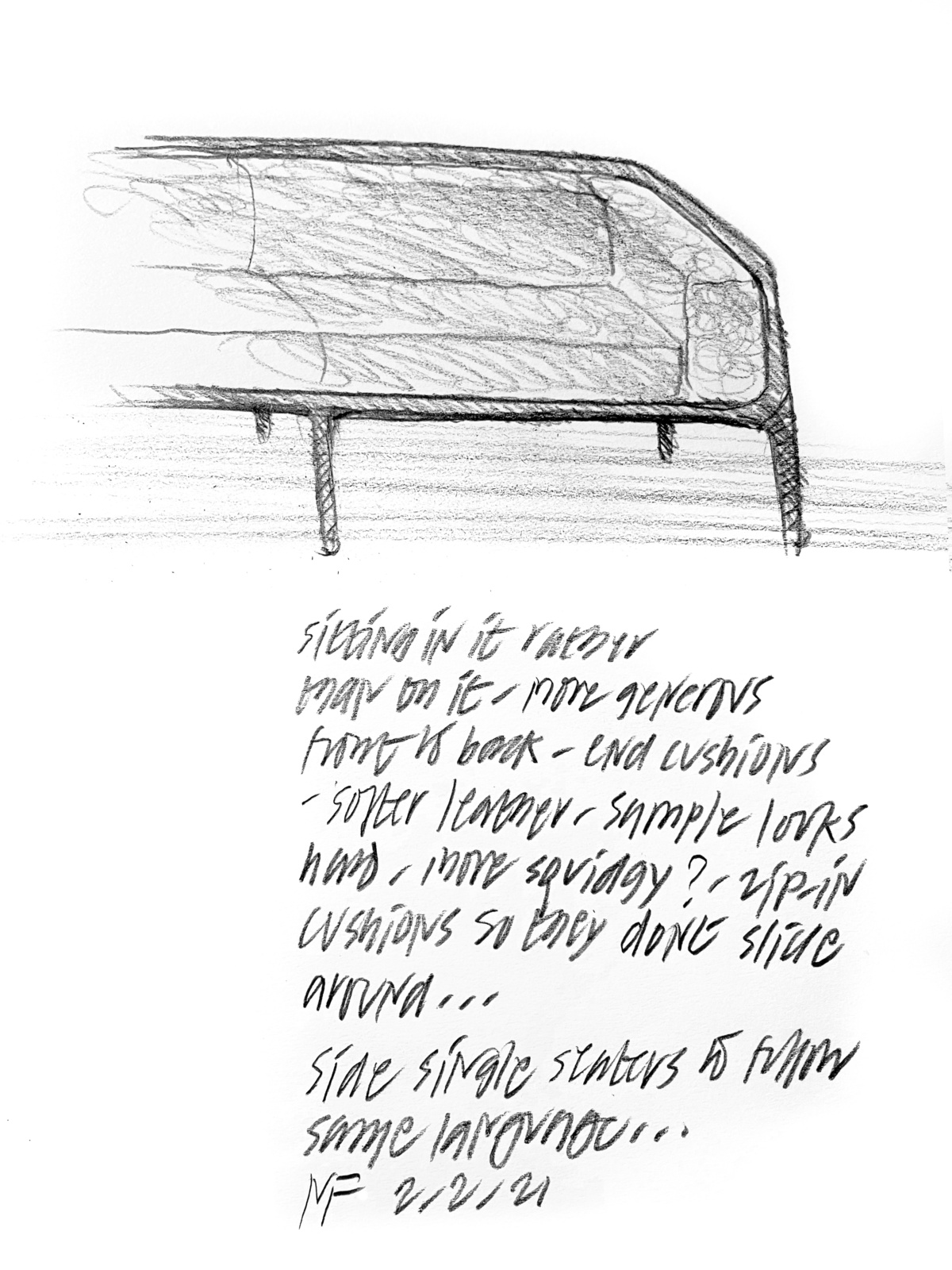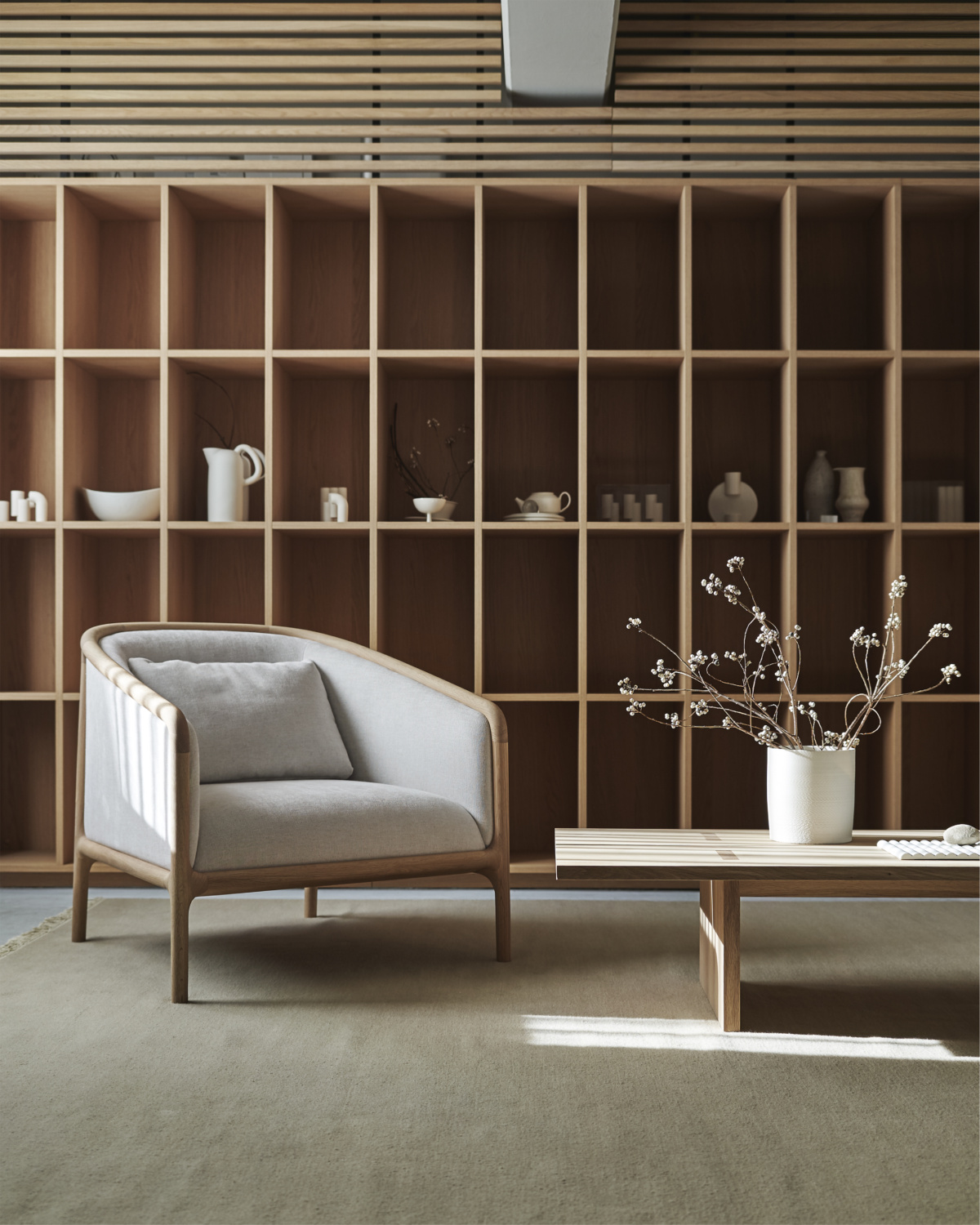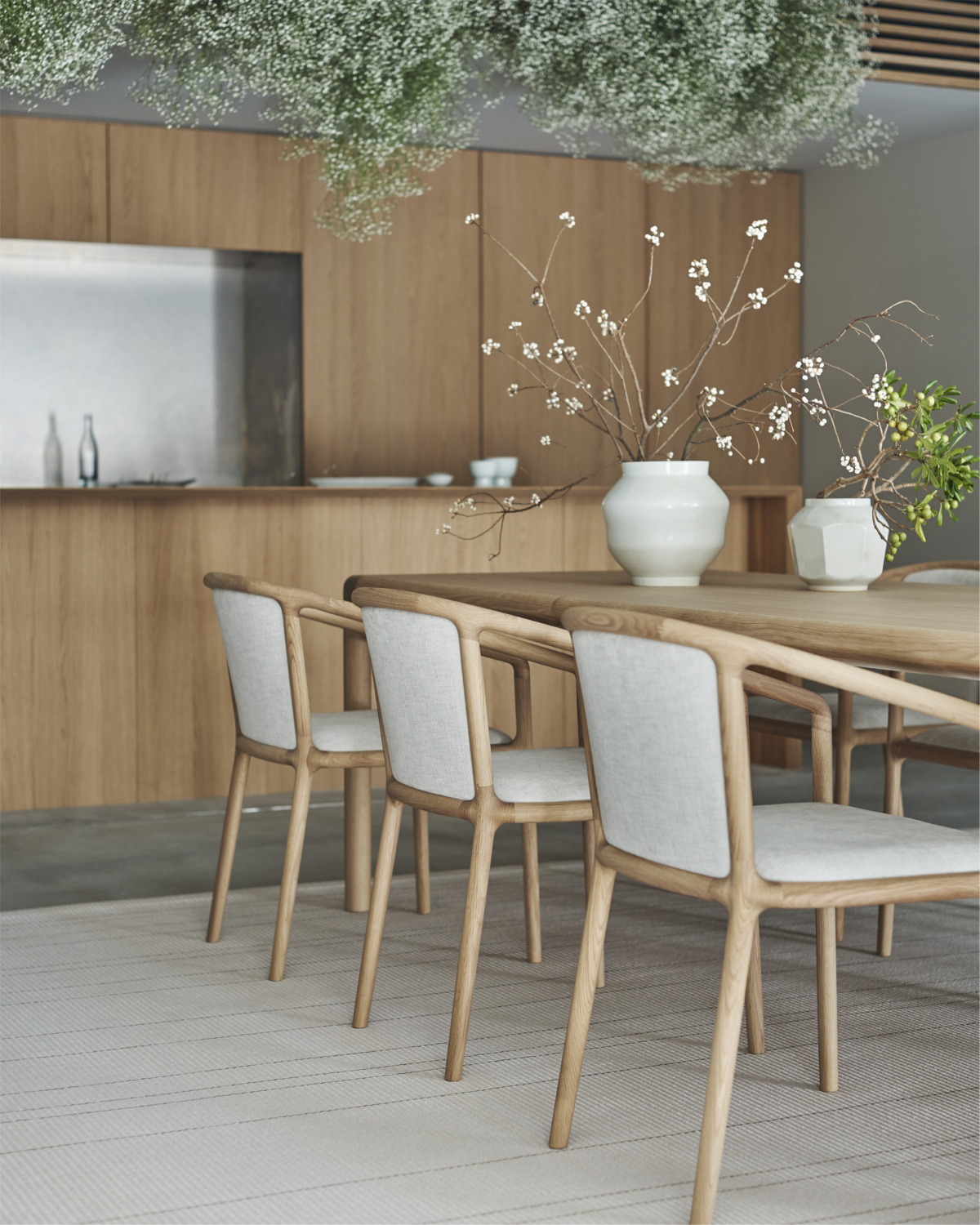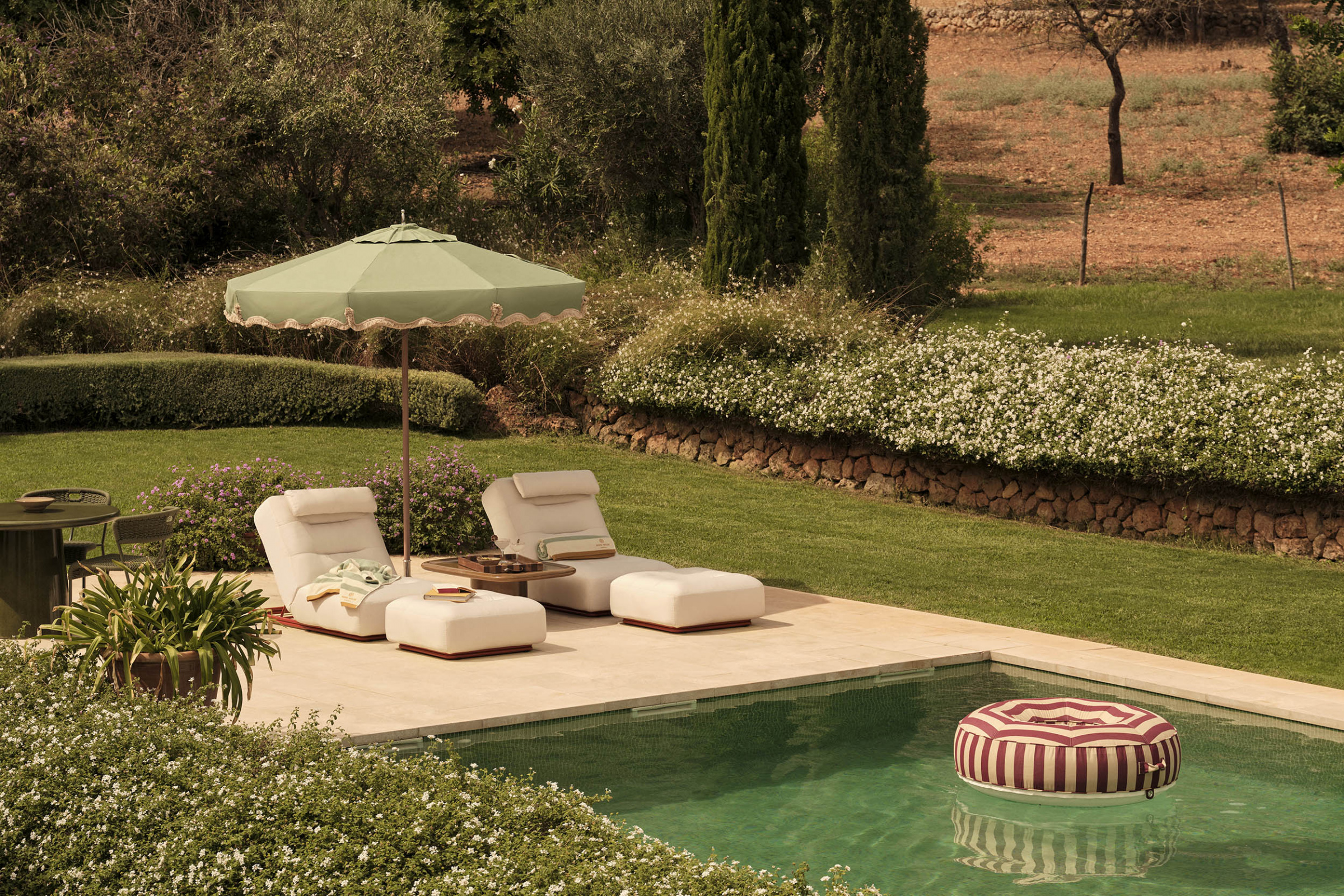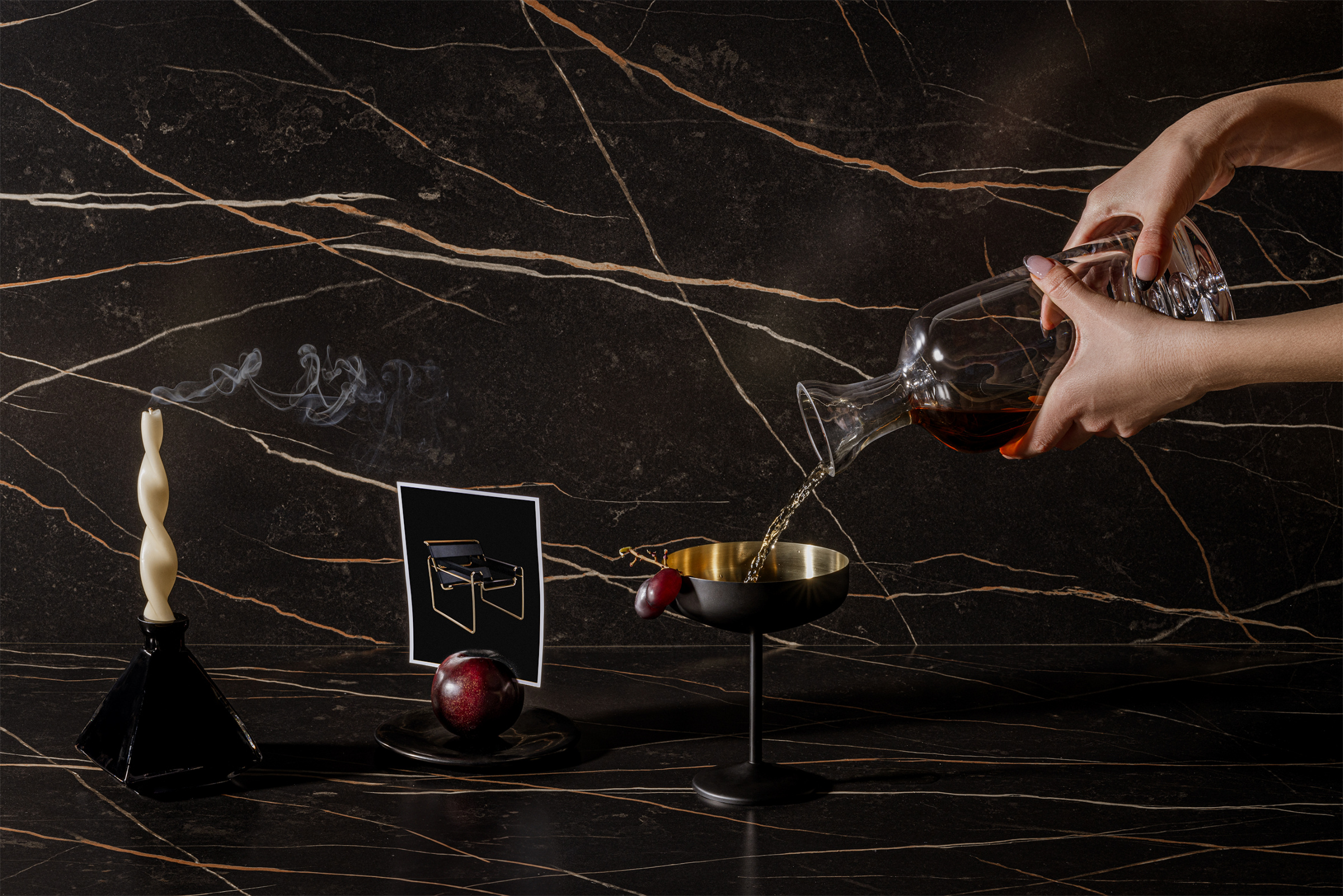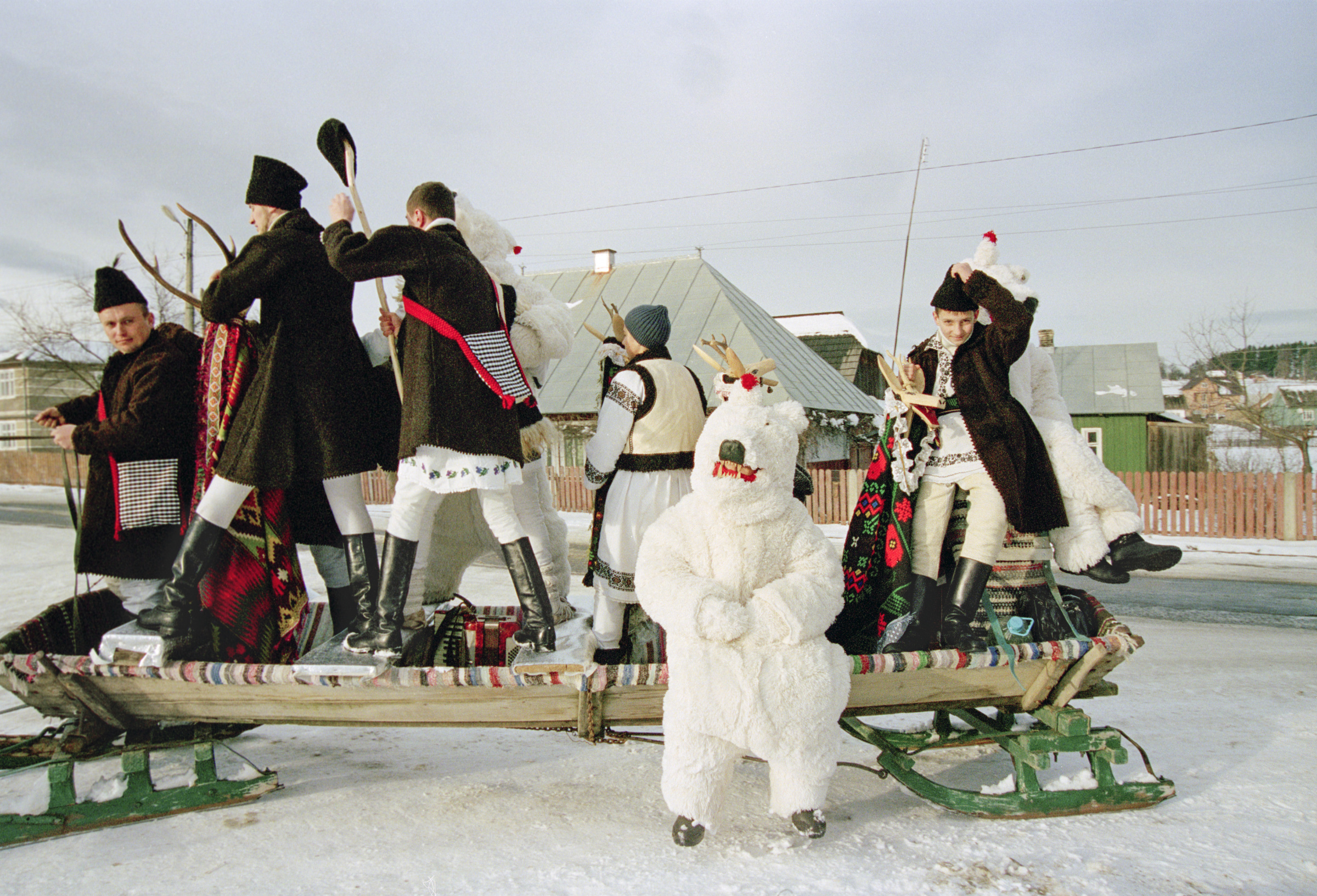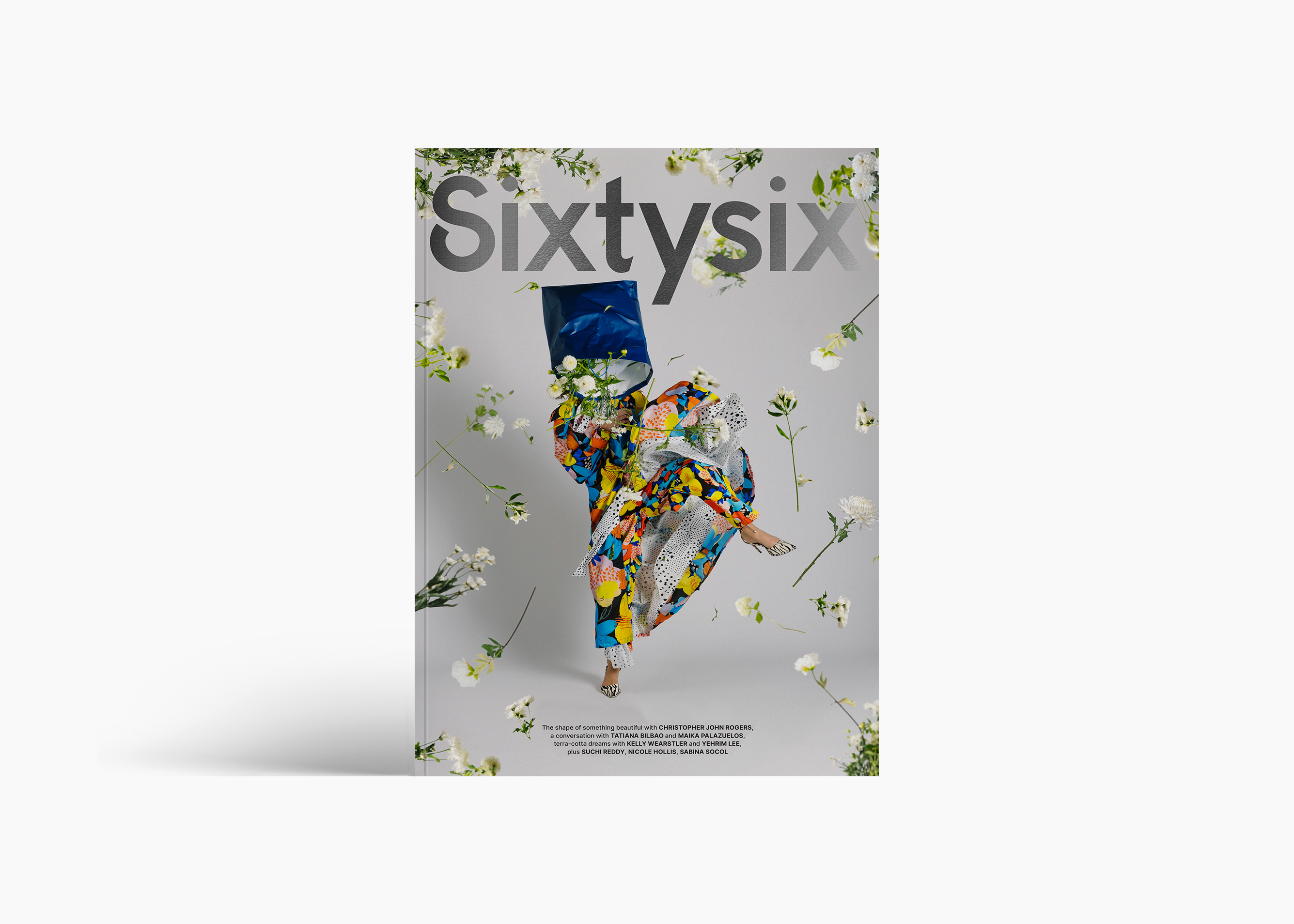Japanese furniture manufacturer Karimoku has a simple goal: to make people happy. “Today we have many difficulties—for example, war, sustainable matters, and also a divided society. We are always thinking as a furniture manufacturer, what we, Karimoku, can do for giving people a better life,” Vice President of Karimoku Furniture Hiroshi Kato says. “Our goal is to study and to reach a conclusion about what furniture can do for a better life, and better living.”
Hiroshi and the Karimoku team launched a sub-brand, Karimoku Case Study, to approach this goal. Working with architects, Karimoku develops collections to address the specific needs of a particular setting, working from its architecture down to the little details of the furnishings to produce a cohesive space. The hope is to produce furniture collections that tell the story of the space that they were designed for, and also retain timeless and natural beauty.
The new NF Collection, made with Norman Foster’s architecture firm Foster + Partners, is the seventh Case Study. The collection was designed for a private project by Norman Foster.
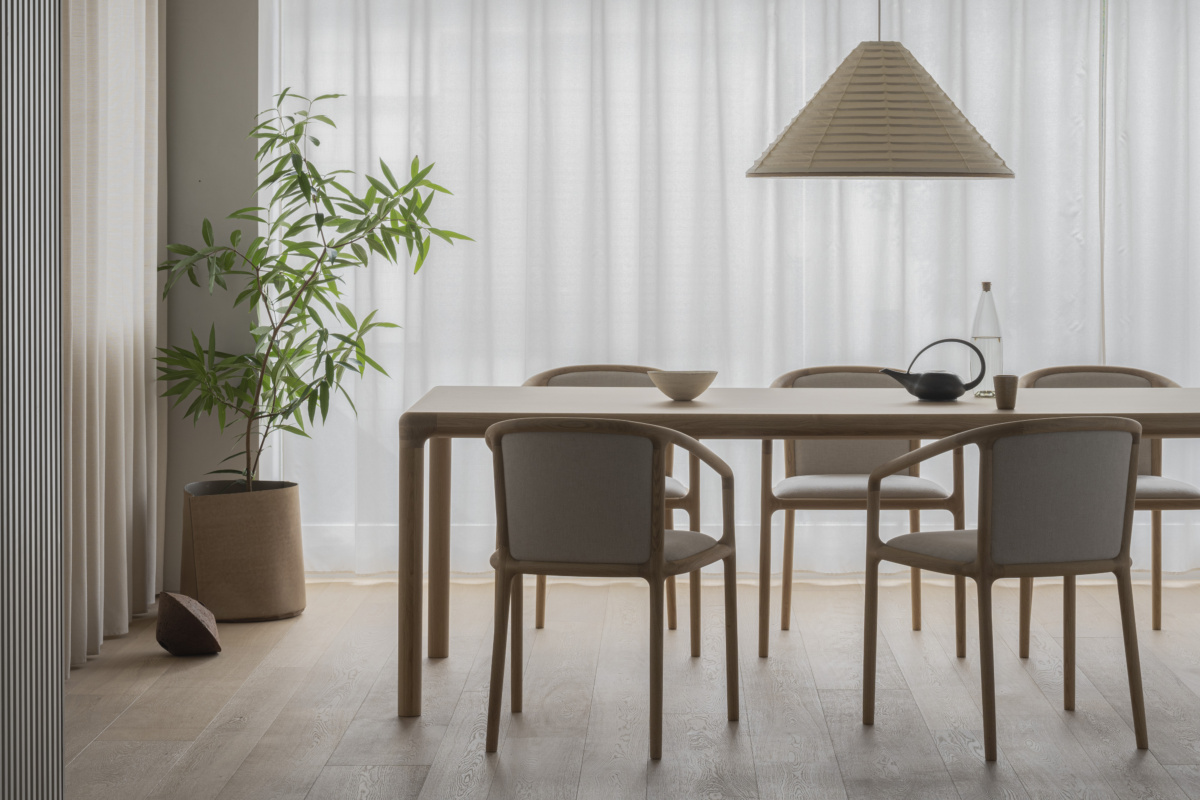
Photo by Masaaki Inoue, Bouillon
“Our material is wood. In this case, because we and Foster + Partners are very conscious about sustainability, we decided to use local Japanese hardwood, oak,” Hiroshi says. Norman Foster provided initial sketches, and Karimoku used its expertise in wood furniture to execute the collection with no big differences. “We and Foster + Partners collaboratively thought about solutions, without any kind of compromise,” Hiroshi says.
The thin wooden frame is almost skeletal, elegant in its delicate appearance. It complements the sharpness of the building with rounded edges, appearing soft and light. “It was the most challenging matter for us to construct beautiful, sensitive furniture that is also strong enough.” Another challenge was communication, as the collaboration began in 2019, soon to be delayed by Covid.
Despite a lack of face-to-face communication, the Case Study collection came together. The seven-piece NF Collection is also on view at Karimoku Commons Tokyo, a gallery space where the manufacturer shows new collections. Hiroshi says the reception has been good, the collection receiving attention not only locally in Japan, but also internationally, for example, in Korea and the US.
“For Karimoku this is just the start. We would like to make more furniture collections if Foster + Partners requests us to make new designs, it would be our great pleasure,” Hiroshi says. “We are a very open minded company, so if global architects would like to work with us, we always welcome it.” This seventh Karimoku Case Study follows past collaborations with Danish firm Norm Architects as well as Japanese architect Keiji Ashizawa, and is surely far from the last.
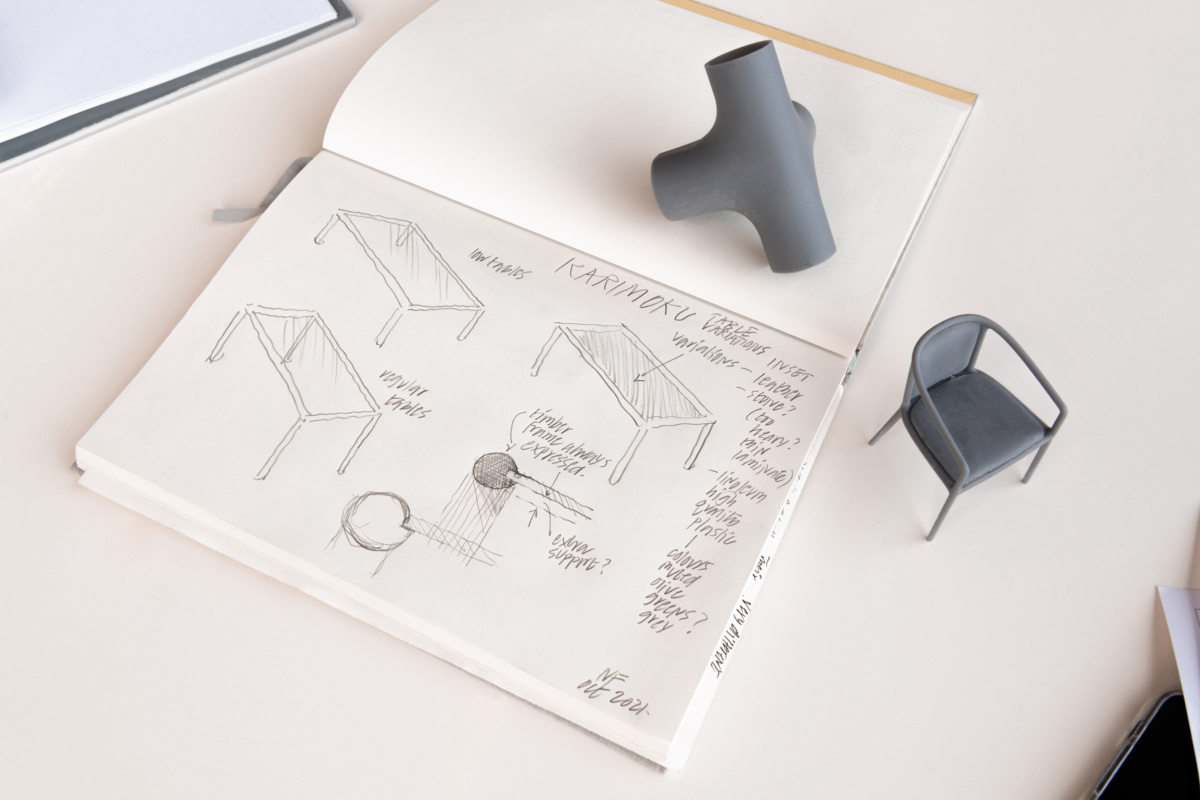
Courtesy Foster + Partners
- Photo by Masaaki Inoue, Bouillon
- “The most difficult thing for us was the shape. We faced some difficulties to design it as beautiful as possible, but also guarantee the toughness, its durability,” Hiroshi says. Photo by Masaaki Inoue, Bouillon
- Courtesy Foster + Partners
- Courtesy Foster + Partners
- Photo by Masaaki Inoue, Bouillon
- Photo by Masaaki Inoue, Bouillon
